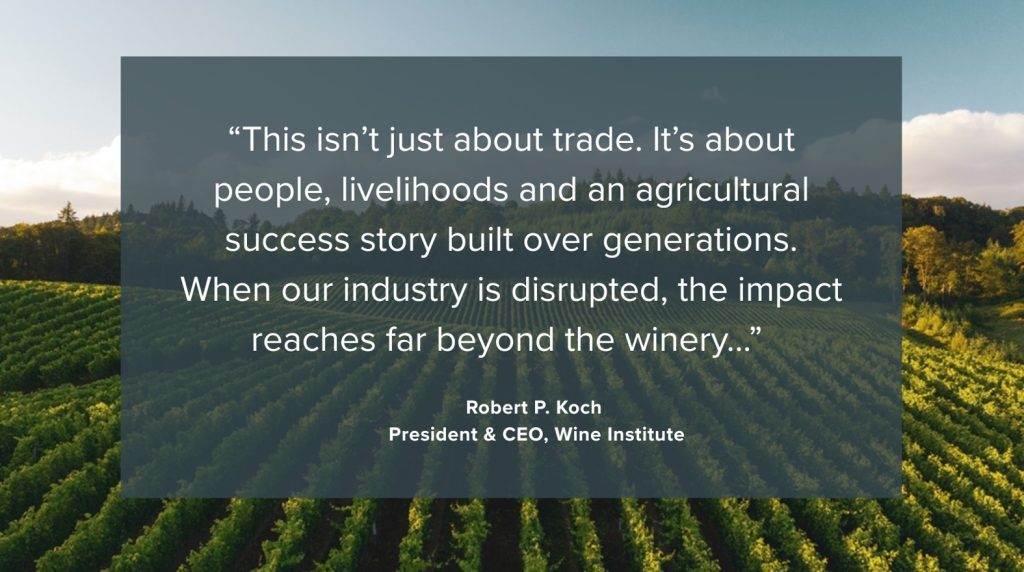After much anticipation, the reciprocal tariffs proposed by the Trump administration have moved into the implementation phase. On April 2, former U.S. President Donald Trump announced a sweeping tariff policy that includes a baseline 10% duty on all imported goods, along with additional country-specific tariffs. The core idea behind this policy is the concept of reciprocal tariffs—in other words, the U.S. would impose the same level of tariffs on imports from a given country as that country imposes on American goods.
While many in the wine industry hoped the sector might remain unaffected, California’s wine producers are already feeling the effects.

Canada’s Boycott and the Blowback from Reciprocal Tariffs
The U.S. and Canada, despite sharing the longest international border in the world, have traditionally maintained a strong and cooperative relationship—until Trump returned to the political stage. Even before introducing his tariff policy, Trump made inflammatory remarks, such as calling Canada “the 51st state of America” and referring to its Prime Minister as “the governor of our 51st state.” Unsurprisingly, this stirred resentment among Canadians—just as South Koreans would react strongly if China claimed Korea as part of “Greater China.”
Despite the existence of the USMCA (United States-Mexico-Canada Agreement), Trump’s declaration that he would impose a 25% tariff on all goods imported from Canada and Mexico only fueled anti-American sentiment.
Against this backdrop, Canadian consumers began boycotting American products in March. Given that Canada accounts for 35% of all U.S. wine exports, California winemakers are feeling the economic fallout. Although Trump later announced on April 2 that products compliant with the USMCA would be exempt from these tariffs, concerns remain about whether California wines can overcome the growing anti-American sentiment already entrenched in the Canadian market.

The Wine Institute Speaks Out
In response to the situation, Robert P. Koch, President and CEO of the Wine Institute, issued a formal statement on April 2. He noted that as of early March, wine, beer, and spirits had become the only American products completely banned from entry and sale in Canada. Prior to this development, the retail value of U.S. wine exports to Canada exceeded $1.1 billion.
Here is an excerpt from the official statement:
The wine sector brings people together, drives economic value and reflects the hard work and heritage of families and farmers across the country.
Today’s announcement of new tariffs will only make it harder for American wineries to regain access to Canada, by far our most important export market. In early March, Canada cleared its shelves of all U.S. wine and continues to block its sale. As this dispute drags on, it is creating economic instability at a time when the industry is already under significant pressure.
This isn’t just about trade. It’s about people, livelihoods and an agricultural success story built over generations. When our industry is disrupted, the impact reaches far beyond the winery — affecting farmworkers, distributors, small businesses, restaurants and entire communities across the country.

The Wine Institute firmly believes that wine, while a major export commodity, is still an agricultural product—distinct from industrial goods—and therefore should not be entangled in trade disputes. The organization calls for wine to be removed from all retaliatory tariff lists.
Ultimately, this is more than a trade issue. It’s about livelihoods, culture, and a legacy cultivated over generations. California’s wine industry is not only an economic powerhouse but also a symbol of American craftsmanship and heritage—loved by wine enthusiasts around the world. One can only hope it weathers this tariff storm with resilience.





